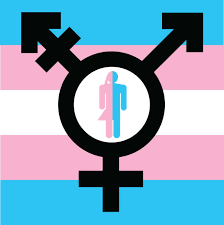Estrogen is commonly known as a female hormone, but it plays a significant role in men’s health as well. While it’s essential for various bodily functions, too much estrogen can lead to a range of unwanted symptoms and health issues. If you’re experiencing signs of elevated estrogen levels, you’re not alone—and there are ways to regain hormonal balance. In this article, we’ll explore practical strategies for reducing estrogen in men, from dietary adjustments to lifestyle changes.
Understanding Estrogen: Why It Matters for Men
Estrogen, although present in lower quantities in men, is crucial for various bodily functions, including maintaining bone density, regulating mood, and supporting reproductive health. However, when levels become unbalanced, it can lead to issues such as weight gain, mood swings, and even decreased libido. Understanding how estrogen functions in the male body can help you recognize when it’s time to take action.Chin Feminization SurgeryHow To Feminise Your Voice
Men produce estrogen primarily through the conversion of testosterone into estrogen via an enzyme called aromatase. Factors such as age, obesity, and lifestyle choices can increase the activity of aromatase, leading to higher estrogen levels. Therefore, being aware of what influences estrogen production is the first step in managing its levels effectively.
Common Symptoms of High Estrogen Levels in Men
Experiencing high estrogen levels can manifest in various ways, and recognizing these symptoms is crucial for taking action. Common signs include weight gain, particularly around the hips and abdomen, fatigue, decreased libido, and mood swings. Additionally, men might experience breast tissue growth, known as gynecomastia, which can be particularly distressing.
Other symptoms may include difficulty concentrating, hot flashes, and decreased muscle mass. If you’re experiencing any of these signs, it might be worth investigating your hormone levels, especially if lifestyle or medical history suggests a potential imbalance.
Dietary Changes: Foods That Help Lower Estrogen
One of the most effective ways to manage estrogen levels is through dietary adjustments. Incorporating foods rich in fiber, such as fruits, vegetables, and whole grains, can support estrogen metabolism in the body. Cruciferous vegetables like broccoli, cauliflower, and Brussels sprouts contain compounds that help break down estrogen, making them excellent additions to your diet.
Additionally, reducing your intake of processed foods and sugars can also help lower estrogen levels. These foods can increase insulin levels, which may lead to an increase in aromatase activity. So, opting for whole, nutrient-dense foods can make a significant impact on hormonal balance.
The Role of Exercise in Balancing Hormones
Exercise is not just great for your physical health; it’s also a powerful tool for balancing hormones. Regular physical activity can help reduce body fat, which is linked to lower estrogen levels. Aerobic exercises, such as running or cycling, combined with strength training, can be particularly effective in promoting overall hormonal health.
Moreover, exercise can help reduce stress and improve sleep quality—two factors that significantly influence hormonal balance. Aim for a mix of cardiovascular workouts and strength training to achieve optimal benefits in managing estrogen levels.
Natural Supplements to Consider for Estrogen Control
If you’re looking for additional support in managing estrogen levels, some natural supplements may help. For instance, DIM (diindolylmethane) is derived from cruciferous vegetables and is often touted for its estrogen-regulating properties. Additionally, zinc is crucial for testosterone production and can help mitigate the effects of high estrogen levels.
Other supplements to consider include fish oil, which can reduce inflammation, and magnesium, known for its role in regulating hormonal balance. Always consult with a healthcare provider before starting any new supplement regimen to ensure it’s appropriate for your individual needs.
Lifestyle Tweaks: Stress Management and Sleep
Managing stress is vital for maintaining hormonal balance. High-stress levels can lead to increased cortisol production, which may indirectly impact estrogen levels. Incorporating stress-reduction techniques, such as mindfulness, meditation, or yoga, can significantly improve your overall well-being and hormone regulation.
In addition to stress management, prioritizing quality sleep is essential. Poor sleep can disrupt hormonal balance, leading to increased estrogen levels. Aim for 7-9 hours of quality sleep per night, and consider establishing a bedtime routine to promote better sleep hygiene.
Medical Options: When to Consult a Doctor
If you suspect that you have high estrogen levels despite making lifestyle and dietary changes, it may be time to consult a healthcare professional. They can conduct blood tests to evaluate your hormone levels and help determine the underlying causes of your symptoms. Medical options may include medications that can block estrogen receptors or aromatase inhibitors, which prevent the conversion of testosterone to estrogen.
It’s essential to approach hormonal issues with professional guidance. Self-diagnosing and treating can lead to imbalances that may worsen your condition. A healthcare provider can help create a personalized plan tailored to your specific needs.
Embracing a Balanced Hormone Lifestyle Moving Forward
Achieving hormonal balance is a journey, not a destination. Embracing a lifestyle that supports balanced hormones involves ongoing dietary choices, regular exercise, and stress management. By being proactive about your health, you can mitigate the effects of high estrogen and improve your overall quality of life.
Remember, small changes can yield significant results over time. Keeping track of how your body responds to these adjustments can help you better understand your hormonal health and make informed decisions moving forward.
Balancing hormones, particularly estrogen levels, can be a game-changer for men’s health. By understanding the role of estrogen, recognizing symptoms of imbalance, and implementing dietary and lifestyle changes, you can take control of your hormonal health. Whether you’re considering supplements or making lifestyle tweaks, remember that every positive change contributes to a healthier, happier you!


